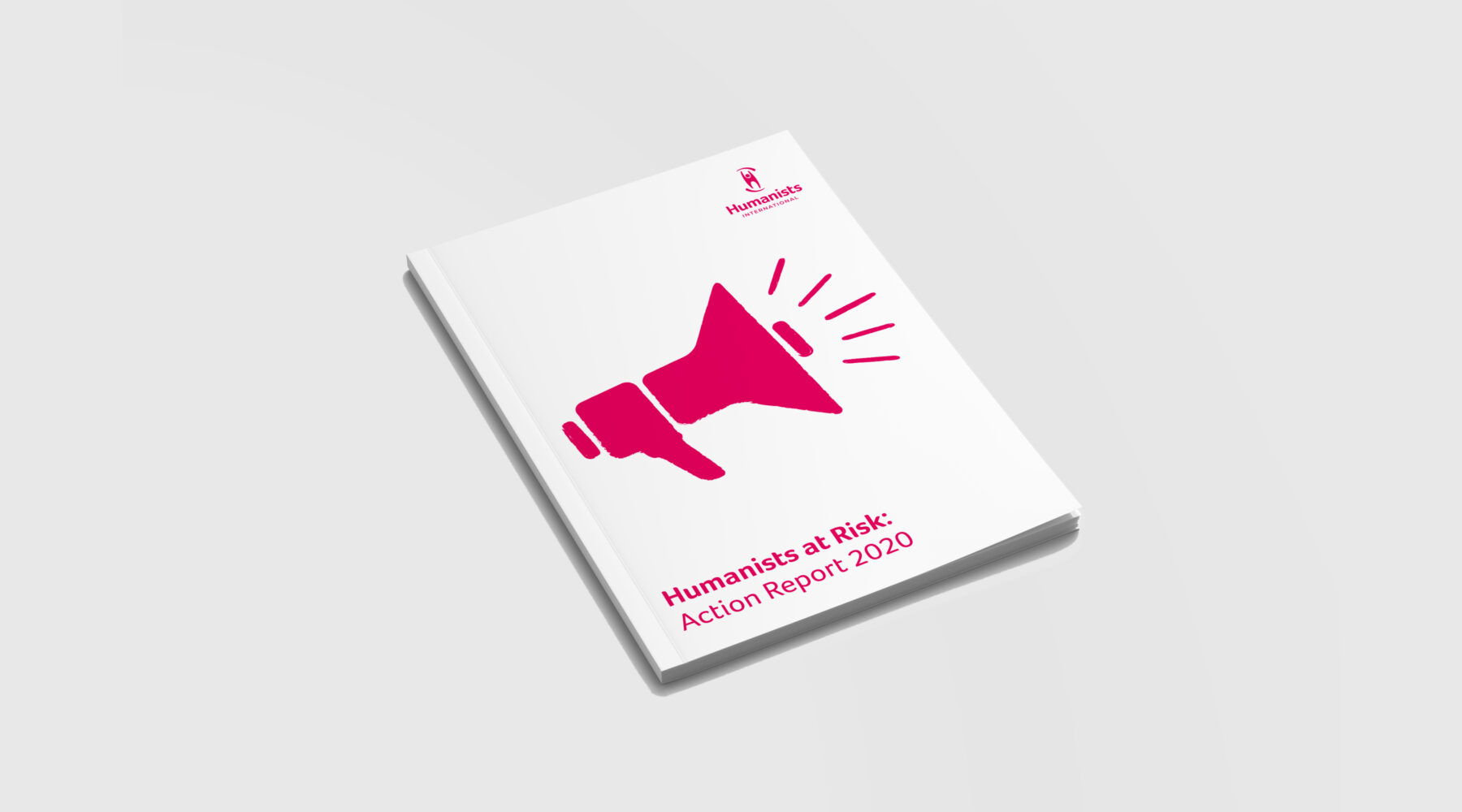
Growing evidence of worsening persecution targeting the non-religious around the world, new report reveals
Humanists International publishes the Humanists at Risk: Action Report 2020

Humanists International publishes the Humanists at Risk: Action Report 2020
“to be a humanist…you must have the courage to lose everything” – Anonymous, Pakistan, 2019.
The Humanists at Risk: Action Report 2020 exposes a lack of separation between state and religion, as well as an array of tactics used against humanists, atheists and non-religious people in Colombia, India, Indonesia, Malaysia, Nigeria, Pakistan, the Philippines, and Sri Lanka to limit their rights to freedom of thought, conscience, and religion or the right to freedom of expression, association and assembly, including:
Humanists and atheists face intimidation, threats, arrest and prosecution, and even death, for sharing their views on social media. For some, while challenging legislation is important in the long-term, their most immediate concern is simply achieving recognition and respect.
“Women’s rights, namely in regards to abortion, are still severely hindered by laws that are clearly based on religious belief rather than public health. Considering the dangers of illegal abortion, I believe this is an urgent issue.” – Anonymous, Colombia, 2019.
Stories from India portray the most brutal form for violence humanists and rationalists face. Narendra Dabholkar, Govind Pansare, M.M. Kalburgi and H Farook were all shot and killed for opposing superstition, criticizing idol worship or religion (read about more cases on page 24 to 26). Failures in the investigation and prosecution of such cases leads to a climate of fear, which may stifle the voices of otherwise outspoken individuals.
“This is the most anti intellectual government in independent India. It is targeting activists, civil society, human rights defenders, freethinkers and any one who challenges Indian ‘mainstream’ which is dominant Hindu vegetarian discourse. Dalit rights activists, Adivasis and the non-religious face the wrath of not only state apparatus but also its supporter extra constitutional lynch mob just because they challenge the values of the caste Hindus.” – Anonymous, India, 2019.
Based on the assessment made on the eight target countries, Humanists International has put forward recommendations for each country intending to improve the situation for humanists and non-religious people and to protect the freedom of thought, conscience, and religion and the right to freedom of expression, association and assembly.
“Changes to the discriminatory laws and social campaigns are definitely useful, but just having our existence to be acknowledged is significant enough to start a change.” – Anonymous, Indonesia, 2019.

Gary McLelland, CEO of Humanists International
Gary McLelland, Chief Executive of Humanists International, commented:
“For too long humanists and other non-religious people have been invisible in the eyes of their own governments and international organizations. This report shines a light on the targeted violence, continued harassment and social discrimination faced by humanists in many countries and opens the door to conversations on how best to protect humanists worldwide. What is clear is that all laws and policies which criminalize ‘blasphemy’ should be repealed.”
Humanists International recommends more research and research funding in order to understand the treatment and experiences of humanists and other non-religious individuals and groups, as well as other religion and belief minority groups. Moreover, dialogue between different religions and beliefs should be promoted and supported in order to help aid social cohesion.
To read the full report, go to https://humanists.international/get-involved/campaigns/humanists-at-risk-report/
For more information, please contact Emma Wadsworth-Jones, Humanists at Risk Coordinator, Humanists International, The Green House, 244-254 Cambridge Heath Road, London, E2 9DA, United Kingdom, email: [email protected]